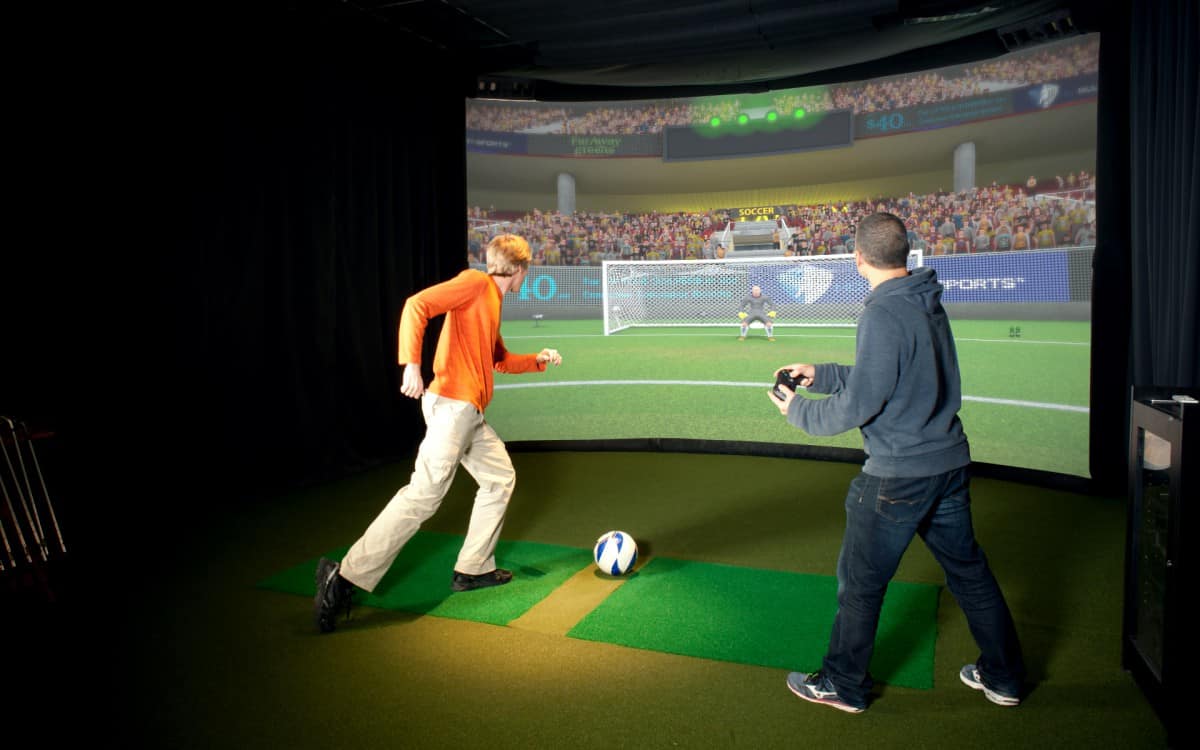The game is one of the phenomena that we encounter every day, and which we can hardly precisely determine and define. Simulations are games in which real-life or some parts of it are simulated. Many authors have written about the ubiquity and importance of games in everyday life, who have viewed the game from different perspectives, thus creating a comprehensive view of this phenomenon. Sports games and sports simulations very often bring together a specific type of gamer. Those who actually rarely play other genres, and even other sports games other than those that come from their favorite franchises, because those players actually like sports rather than video games.
Virtual sports existed more than 50 years ago, even before the advent of computers and the Internet, this type of virtual sport was known as a “social game” and was developed by sports fans. Virtual sports in this form were played according to the prescribed rules with the help of basic equipment which included a game board (so-called game board), playing cards (so-called player cards), dice, and markers. There are several different types of virtual sports games, and the most common are two types: the first type is an original version of a virtual sport known as board games that have retained their traditional form and are played by the same rules, with the proviso that they now have their own computerized version. The second type is a version of virtual sports better known as simulation games where a computer (software program) simulates an actual game. Sports simulations are their most loyal representatives.

Simulation games often show real-world activities, from driving tractors and planes to economic investments and home decorating. The simulation genre is also one of the widely accepted genres because games are intended for every age, of course depending on which example is specifically being studied. The most common motive among simulation games is economics. Simulation games compared to each other in most cases have different game mechanics, which does not quite fit the definition of the genre, but they are united by simulating real events and situations that make this genre separate.
Simulation games are games in which, in order to be successful, you need to have certain ones at your disposal by the quantum of knowledge from the field to which the theme of the game belongs. For example, flight simulations require some knowledge of physics. Of course, this is just basic knowledge. Some sports games can also be counted in this type of games, which implies knowledge of the rules of real games. The outcome of simulation games is almost always known. The degree of uncertainty almost doesn’t exist.
All a player has to do to get to the end of the game is strictly defined and known to the player. That way, after a while, the game goes into the routine. However, sports games are “ability” games. These games are not based on the use of force and violence, but on the precision, speed, and skills of players in using computer resources system, with the purpose of overcoming various obstacles of the computer game. Not in these games they lose or win lives, but points, balls, and the like.
Sports games are very popular and are most often real-world sports: football, basketball, tennis, golf, cycling, fishing, and various other sports. There are examples through sports computer games whose concept is not an accurate representation of the real sport but still belong to that genre. If we had to single out one sports game that fascinated players around the world, then it is definitely FIFA. FIFA is a “football simulator released by Electronic Arts (EA). The game allows its players to choose a football club to lead to/from any league in the world. The purpose of the game is to make the club that person runs the best club in that league, and later in the world. Also, there is a multiplayer option in which people, respectively players from all over the world can compete with each other by playing matches, and the winner is the player whose team eventually wins. FIFA is currently the best-selling sports video game in the world. Click here to learn more about it.
Negative effects of computer games on children

The basic characteristic of a large number of computer games and video games is a great amount of aggression. Analysis of the content of computer games and video games shows that 89% of them contain some violent content. Violent behavior develops through repetition. Some authors warn that younger children find it difficult to distinguish the real world from the world of games. This is most often manifested through neglect of the feelings and rights of others and aggressive and violent behavior towards peers, which is why they often reject the player.
Positive effects of computer games on children

Although we will hear much more often about the negative impact of games on children, they also bring us certain benefits. Some computer games can be useful for learning – for example, simulation games and the like. Proponents of computer games and video games that emphasize their positive sides, emphasize the world of imagination and countless possibilities, and how they improve speed, concentration, focus, stimulate thought processes, associative and hypothetical thinking, enhance movement coordination. Computer games improve problem-solving skills and do it fast by recognizing causes, managing resources, thinking quickly, and making decisions decision. By moving from easier levels to more difficult levels, the child learns to exercise gradually their goals and increase self-efficacy.
Final thoughts
Through the relatively short history of computer games, we notice that the development of games is fast, and is changing in light of current trends. This makes it difficult to predict the future of computer game genres, because in a few years we may have genres we have no idea about today. Technologies like VR support this kind of development. Opinions are divided when we talk about the VR genre as a separate category, some believe that the full potential is yet to be presented, while others believe that this form of the future will not come to life.
Users ie. players still have the pleasure and enjoyment of playing computer games, where everyone can find a game according to their preferences. In the end, we are all different in some way and as long as that difference exists, a multitude of genres will be created to ultimately find a game for everyone.







